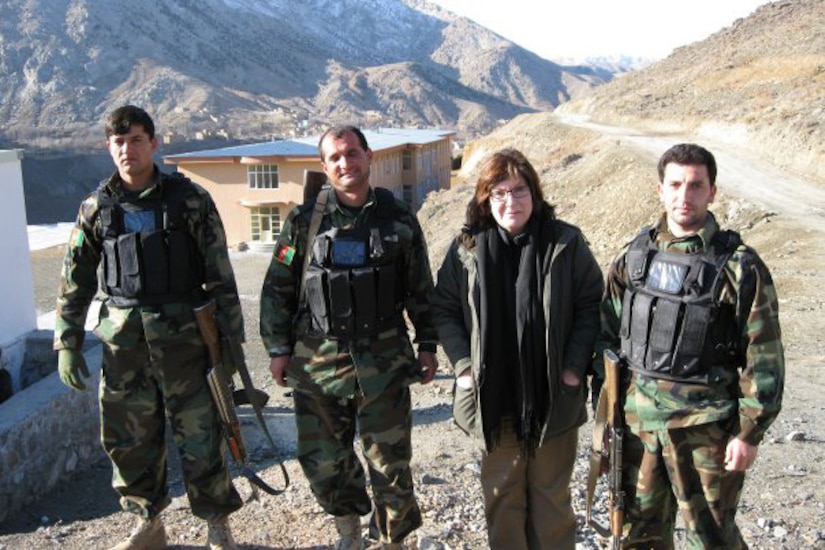Sept. 7, 2021 | , DOD News
On September 11, 2001, she was like the rest of Americans. Starr was working as a producer for ABC News then and woke up early to get a head start on the day. September 11 is her birthday, and she was looking forward to an easy day and maybe getting out early to have dinner with friends.
"I looked out my bedroom window," she said in an interview. "It was gorgeous clear blue sky, but little did I know that literally a black cloud of terrorism was just over the horizon."

When the first plane hit the Twin Towers in New York, she immediately went to talk with people in the Pentagon. "I was sitting with other reporters in the office of the public affairs chief for the chairman of the Joint Chiefs. We're all looking at the TV, and the second plane hits. He looks at his aide, and he says, 'Get down in the hall, right now, find out what just happened.'"
Barbara went down the hall, too; She said a general coming out of the command center told her "It's terrorism."
She went back to the office space ABC uses at the Pentagon. "I opened the door to speak to Jack McWethy, the correspondent I'm working for," she said. "He looked at me, and he said a plane just hit us. He had seen it on TV."
Just then a Pentagon police officer ran down the hallway "yelling at the top of his lungs, 'Get out, get out, get out, we've been hit,'" she said. "These are not the words you expect to hear. We all moved very quickly to the nearest exit."
She left the building and walked to where the smoke was. "I turned left and got on the road near the old helicopter pad, and there it was — five stories of fire and smoke," she said.
"I'm looking at the building in flames, and I knew that was the side of the building where Navy Public Affairs was at the time," she said. "I had so many people I was close to there that my stomach was in knots."
It wasn't until about 1 p.m., after DOD had set up a press area at the gas station overlooking the impact area, that Starr met her friends. In the meantime, she was talking with people and trying to get an understanding of the scope of the attack.
Medical and military helicopters were landing near the building to evacuate casualties. More and more fire engines and ambulances came to the site. Pumper trucks were dousing the building, but there were areas the water couldn't reach and the flames actually grew through the afternoon.
That day changed life for all Americans. Starr left ABC and moved to CNN where she became a correspondent and a familiar person giving the latest developments from the Pentagon and traveling the world telling the stories of U.S. service members doing the work asked of them. Starr reported from Afghanistan, Iraq, the greater Middle East, Europe and NATO, and Asia. She was one of the first American journalists to cover U.S. forces in Syria. And she's still going strong.
Starr also reported on the costs of the war with stories about those killed and those service members overcoming injuries sustained in the conflicts.
She remembers all that was lost that day. "I remember [Army] Sgt. Maj. Max Beilke," she said. "In American history, he was the last soldier to leave Vietnam in 1973. He was one of those killed in the Pentagon on 9/11."
She understands the significance of 9/11 to Americans. "I fully understand that 9/11 is shifting into history," she said. "Just as Pearl Harbor has, or the Battle of the Bulge, or Normandy, these huge military events. But this is why the veterans community is so important. Because as these things do shift into history, the veterans are often the last voice there to remind all of us what has happened, what a terrible thing war is and what we lost."






No comments:
Post a Comment